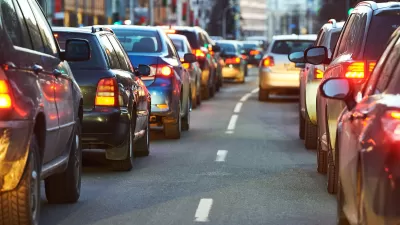According to an analysis of U.S. National Travel Surveys, the Millennial preference for non-automotive travel is mostly hype. Millennials show behavior similar to other age groups and respond to the economy.

Evelyn Blumenberg and Brian D. Taylor have heard the dominant narrative about the travel preferences of Millennials:
Among the many traits thought to make millennials unique is their travel. They drive less, ride public transit and bicycles more, and have a stronger desire to live in walkable urban communities. Or so the story goes.
But what if that story is wrong? Blumenberg and Taylor wondered the same thing and dug into the data for answers, examining data from the U.S. National Travel Surveys for 1990, 2001, and 2009, regarding "range of information on travel over time, detailed personal and household characteristics, and spatial information…" Their findings do indeed tell a different story:
In a nutshell, we found little evidence of a substantial cultural turn by millennials away from cars and suburbs. We found some evidence of generation-specific declines in driving among millennials, but the effects were modest. So what did have the biggest effect on millennial travel? The economy. Most of the drop in driving was likely due to the effects of the Great Recession.
To further elucidate the truth about Millennial mobility choices, the duo set out to answer eight questions, detailed further in the source article.
For more recent news on generational travel trends, see also a Planetizen post sharing the news about increasing vehicle miles traveled among young, low-income Americans.
FULL STORY: Millennial Travel: Who Knows About Kids These Days?

Alabama: Trump Terminates Settlements for Black Communities Harmed By Raw Sewage
Trump deemed the landmark civil rights agreement “illegal DEI and environmental justice policy.”

Planetizen Federal Action Tracker
A weekly monitor of how Trump’s orders and actions are impacting planners and planning in America.

The 120 Year Old Tiny Home Villages That Sheltered San Francisco’s Earthquake Refugees
More than a century ago, San Francisco mobilized to house thousands of residents displaced by the 1906 earthquake. Could their strategy offer a model for the present?

In Both Crashes and Crime, Public Transportation is Far Safer than Driving
Contrary to popular assumptions, public transportation has far lower crash and crime rates than automobile travel. For safer communities, improve and encourage transit travel.

Report: Zoning Reforms Should Complement Nashville’s Ambitious Transit Plan
Without reform, restrictive zoning codes will limit the impact of the city’s planned transit expansion and could exclude some of the residents who depend on transit the most.

Judge Orders Release of Frozen IRA, IIJA Funding
The decision is a victory for environmental groups who charged that freezing funds for critical infrastructure and disaster response programs caused “real and irreparable harm” to communities.
Urban Design for Planners 1: Software Tools
This six-course series explores essential urban design concepts using open source software and equips planners with the tools they need to participate fully in the urban design process.
Planning for Universal Design
Learn the tools for implementing Universal Design in planning regulations.
Clanton & Associates, Inc.
Jessamine County Fiscal Court
Institute for Housing and Urban Development Studies (IHS)
City of Grandview
Harvard GSD Executive Education
Toledo-Lucas County Plan Commissions
Salt Lake City
NYU Wagner Graduate School of Public Service





























